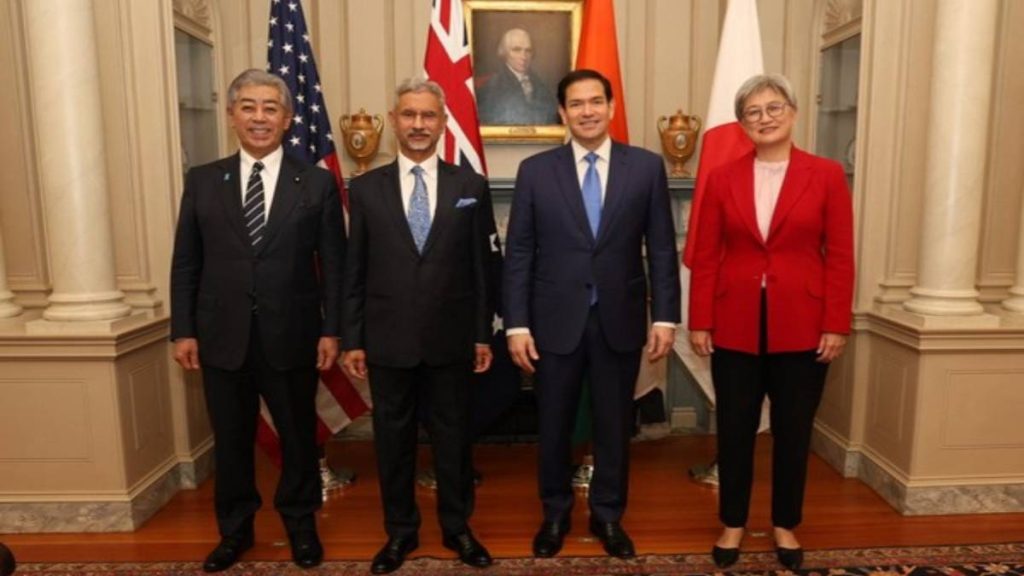The foreign ministers of the Quad nations—India, the United States, Japan, and Australia—reaffirmed their commitment to a free, open, and rules-based Indo-Pacific during a high-level meeting in Washington, DC, on July 1. They expressed serious concern over escalating tensions in the East China Sea and South China Sea, citing coercive and provocative actions that threaten regional peace and stability.
US Secretary of State Marco Rubio, Indian External Affairs Minister S. Jaishankar, Japanese Foreign Minister Takeshi Iwaya, and Australian Foreign Minister Penny Wong strongly opposed unilateral attempts to change the status quo by force.
In a joint statement, the ministers condemned actions such as interference in offshore resource development, obstruction of navigation and overflight, and aggressive behavior by military and maritime militia vessels—including the unsafe use of water cannons and ramming. “We remain seriously concerned… and strongly oppose any unilateral actions that seek to change the status quo by force or coercion,” the statement said.
The ministers emphasized the importance of upholding international law, particularly the United Nations Convention on the Law of the Sea (UNCLOS), and reiterated that maritime disputes must be resolved peacefully. They also reaffirmed the relevance of the 2016 arbitral tribunal ruling as a key milestone in peacefully settling South China Sea disputes.
The Quad leaders announced a renewed agenda focused on four priority areas: maritime and transnational security, economic prosperity, emerging technologies, and humanitarian assistance. The aim is to enhance the Quad’s ability to address regional challenges in cooperation with partners, including ASEAN, the Pacific Islands Forum, and the Indian Ocean Rim Association (IORA).
Concerns over critical mineral supply chains were also a focal point. The ministers highlighted risks from overdependence on single countries for processing and refining, warning that such reliance makes global industries vulnerable to economic coercion and supply disruptions.
The leaders further condemned North Korea’s continued ballistic missile launches and pursuit of nuclear weapons in violation of UN Security Council resolutions. They voiced grave concern over North Korea’s malicious cyber activities and illicit funding methods, and urged full compliance with international sanctions.
The meeting concluded with a call for unity among like-minded nations to uphold sovereignty, rule of law, and regional stability in the Indo-Pacific, reinforcing the Quad’s role as a key pillar of peace and security in the region.
